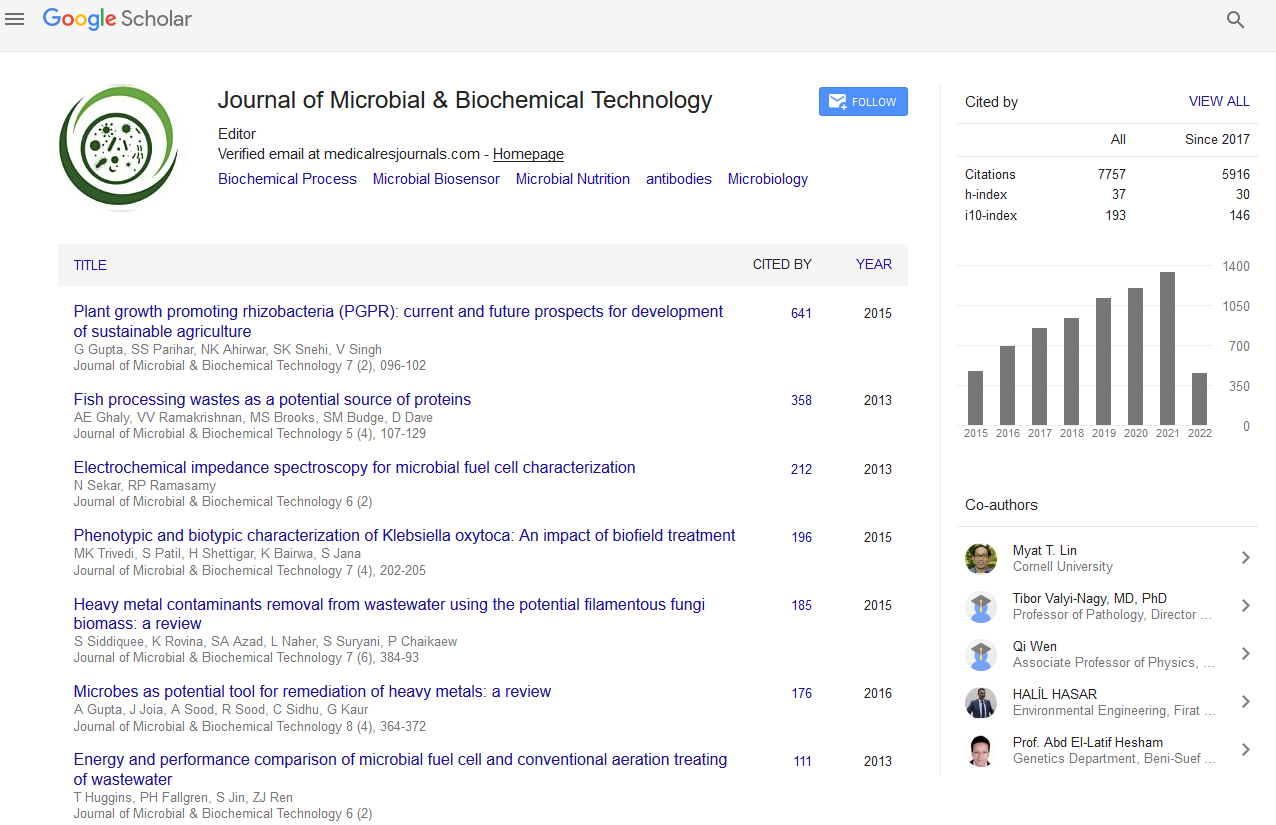PMC/PubMed Indexed Articles
Indexed In
- Academic Journals Database
- Genamics JournalSeek
- Academic Keys
- JournalTOCs
- China National Knowledge Infrastructure (CNKI)
- Scimago
- Access to Global Online Research in Agriculture (AGORA)
- Electronic Journals Library
- RefSeek
- Directory of Research Journal Indexing (DRJI)
- Hamdard University
- EBSCO A-Z
- OCLC- WorldCat
- SWB online catalog
- Virtual Library of Biology (vifabio)
- Publons
- MIAR
- University Grants Commission
- Geneva Foundation for Medical Education and Research
- Euro Pub
- Google Scholar
Useful Links
Share This Page
Journal Flyer

Open Access Journals
- Agri and Aquaculture
- Biochemistry
- Bioinformatics & Systems Biology
- Business & Management
- Chemistry
- Clinical Sciences
- Engineering
- Food & Nutrition
- General Science
- Genetics & Molecular Biology
- Immunology & Microbiology
- Medical Sciences
- Neuroscience & Psychology
- Nursing & Health Care
- Pharmaceutical Sciences
Abstract
Antimicrobial Susceptibility of Proteus mirabilis: Impact of Biofield Energy Treatment
Mahendra Kumar Trivedi, Alice Branton, Dahryn Trivedi, Gopal Nayak, Sambhu Charan Mondal and Snehasis Jana
Proteus mirabilis (P. mirabilis) is widespread in nature, mainly found in soil, water, and the flora of human gastrointestinal tract. The current study was attempted to investigate the effects of Mr. Trivedi’s biofield energy treatment on P. mirabilis both in lyophilized as well as revived state for antimicrobial susceptibility, biochemical characteristics, and biotype. P. mirabilis cells were procured from MicroBioLogics Inc., USA, in a sealed pack bearing the American Type Culture Collection (ATCC 25933) number and stored according to the recommended storage protocol until needed for experiments. Two sets of ATCC samples were taken in this experiment and denoted as A and B. The ATCC A sample was revived and divided into two parts Gr.I (control) and Gr.II (revived); likewise, the ATCC B was labeled as Gr.III (lyophilized). Group II and III were given with biofield treatment. All experimental parameters were studied using automated MicroScan Walk-Away® system. The result of antimicrobial susceptibility and minimum inhibitory concentration showed 6.67% and 9.38% alteration, respectively in treated cells of P. mirabilis as compared to the control. In addition, the overall biochemical reactions were significantly altered (42.42%) in the treated groups with respect to the control. Moreover, biotype number was changed in the treated cells, Gr. II, day 5 (40061546) and day 10 (77365764), while without alteration of organism as compared to the control (40061544; Proteus mirabilis). The results suggested that biofield treatment has an impact on P. mirabilis in revived state predominately.


